Are you familiar with the feeling of having butterflies in the stomach? The most widely known reason for this phenomenon is Love. What is more interesting is that there are a lot of interesting (and romantic!) psychological facts about love, you might not know about.
Scientists keep publishing their new discoveries about love. Some experts say that being in love is not only emotionally rewarding but you feel it at a physical level too. Research says love can change your brain, relieve your pain, reduce stress, heal your inner wounds, and even help you live longer. Falling in love is as addicting as cocaine, according to some love gurus.
Sometimes people who think they have fallen in love may actually be suffering from mental illness. Surprised? Well, there are many more things about love that will surprise you or make you think twice. So, here is a compilation of interesting psychology facts about love.
30 Psychological Facts About Love That Everyone Would Love To Know.
1. Men fall in love faster than women. Women take 15 days, men just 8 seconds.
2. Love is literally blind. It doesn’t seem to matter what other people say to your lover. He/she is always perfect in your eyes.
3. If you are in love and you would like to know whether it will last, you should just ask your mom, according to a study.
4. Love always starts with physical features.
5. Heartbreak after true love is equally painful as physical pain.

6. Love is a drug and it is as addicting as cocaine. Once you have it, it’s hard to stop it. You will always want more.
7. People loving people of the opposite nature last for a longer period of time than loving people of a similar nature.
8. Just by looking at the picture of your beloved one, you can feel a sense of relief.

9. Biochemically speaking, being in a romantic love affair cannot be distinguished from having obsessive-compulsive disorder.
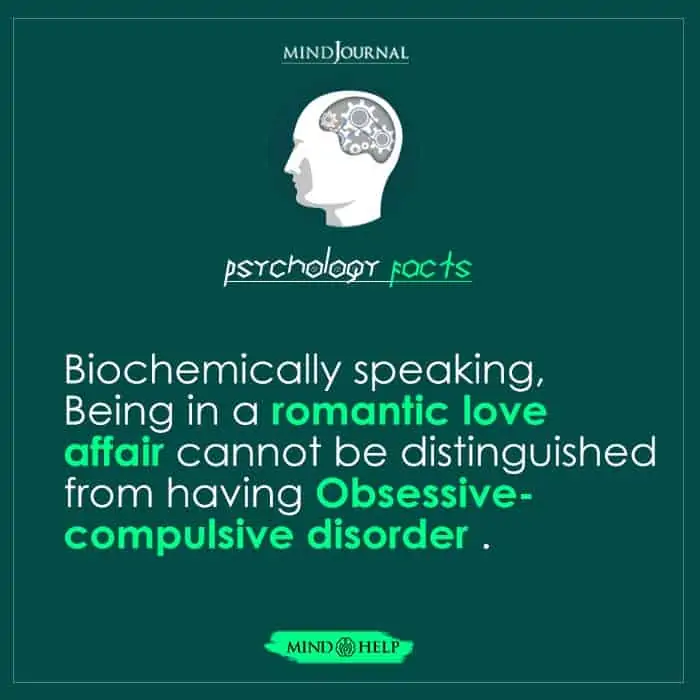
10. Some people can’t bear the loss of beloved ones and eventually die after a few months and years due to mental or physical illness.
11. Our hearts have nothing to do with the feeling of love, it’s only a chemical reaction of the brain
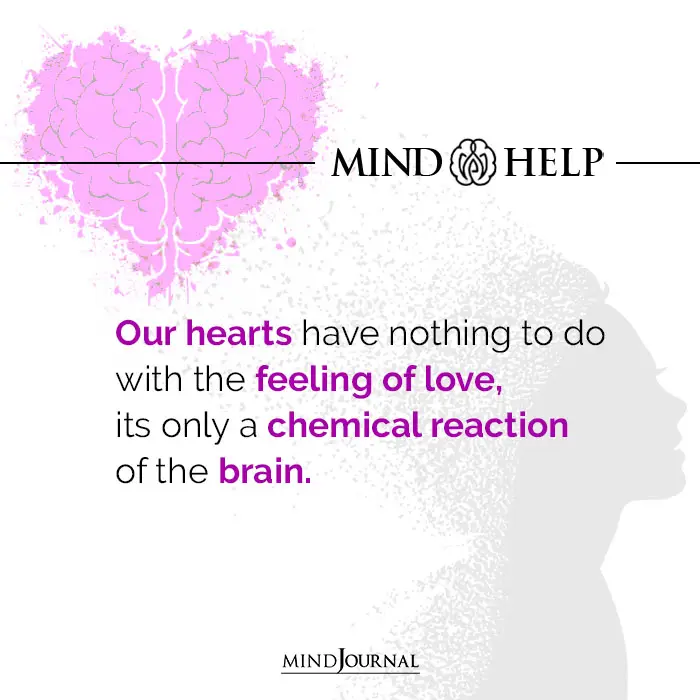
12. Men express their strongest feelings through the act of making love.
13. Talkative girls and silent boys make the best couples.
14. Not speaking with the one you love for more than 48 hours can make you feel homesick.
15. Thanatophobia is the fear of losing someone you love.

16. Appearance and Social Status doesn’t matter at all if you have liked someone due to their good behavior or good personality.
17. Falling in love shuts off the prefrontal cortex of the brain, which makes people in a new relationship do questionable and embarrassing things.
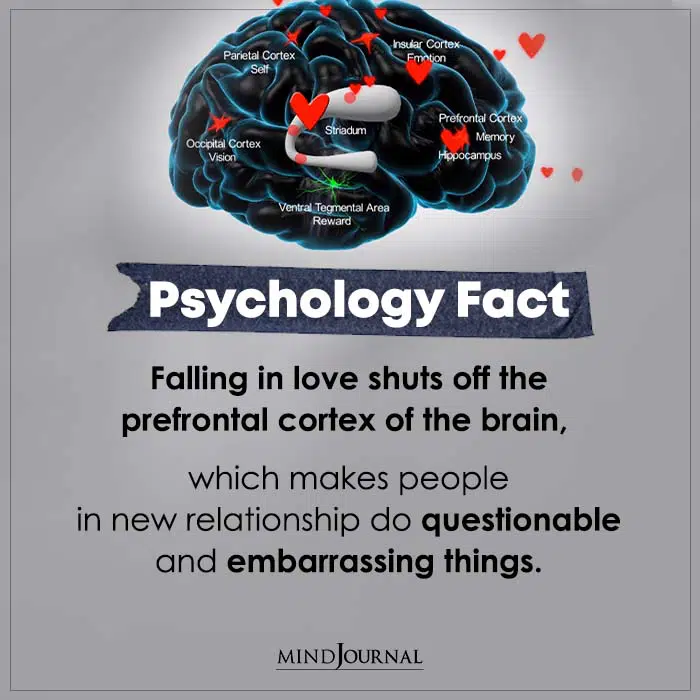
18. The sex drive motivates you to look for a whole range of partners, but romantic love is about focusing your mating energy on one person at a time.
19. Women tend to feel loved when talking face-to-face with their partners whereas men feel emotionally close when they play or talk side-by-side.
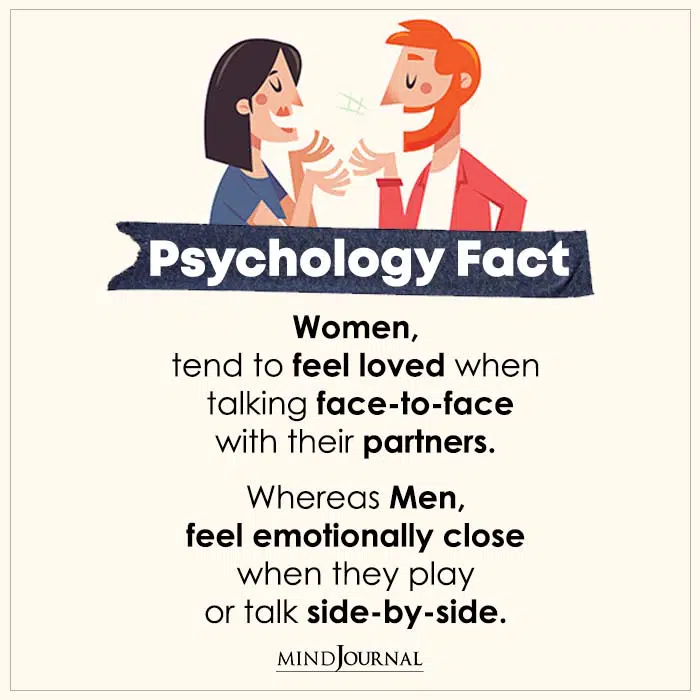
20. For most people, happiness and life fulfillment revolves around love or simply searching for love, according to research.
21. Thinking of love and sex influences creativity and concrete thinking, respectively
22. It takes 15 months and 27 days to forget someone you love with all your heart.

23. When you hold the hand of a loved one, you feel pain less keenly and worry less.
24. People who believe that a celebrity, wealthy, or a person of a high social position is in love with them are affected by Erotomania, a rare mental health condition.
25. You are more likely to be easily attracted to someone you have no chance with.

26. Most people can’t make eye contact with their crush.
27. People are more likely to be attracted to someone who shares their initials, according to the name-letter effect.

28. Dilated pupils show your attraction to someone and make you more attractive.
29. You always relate to a person you love with your best songs.
30. Being in love reduces neuroticism.
If you enjoyed reading these psychological facts on love, please leave your comments below.
You May Also Like:
- 23 Fun Facts About Dating
- 10 Interesting Relationship Facts – You Need to Know
- 20 Interesting Facts About Dreams That You Didn’t Know About
- Interesting and Honest Facts About Each Zodiac Sign
- 10 Surprising Facts About Loneliness

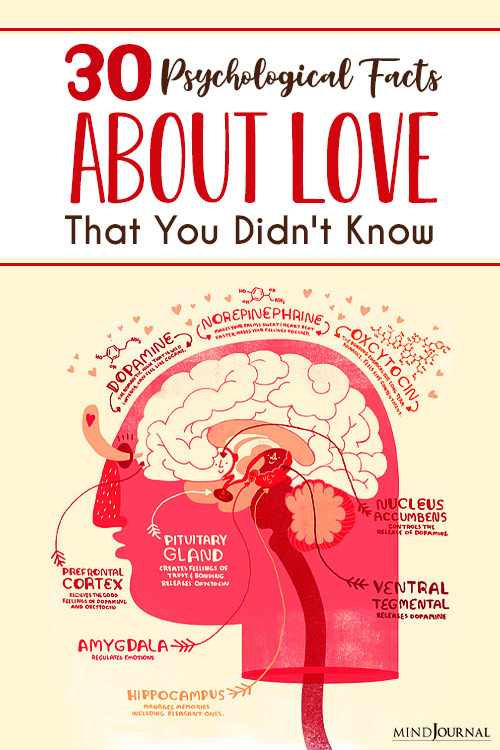
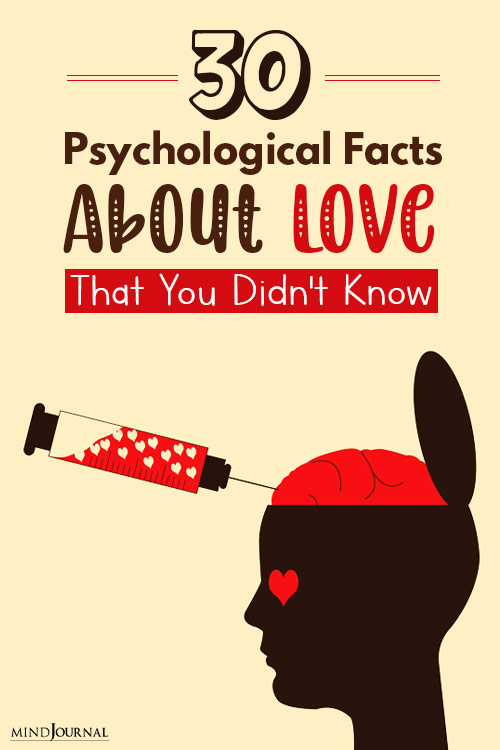
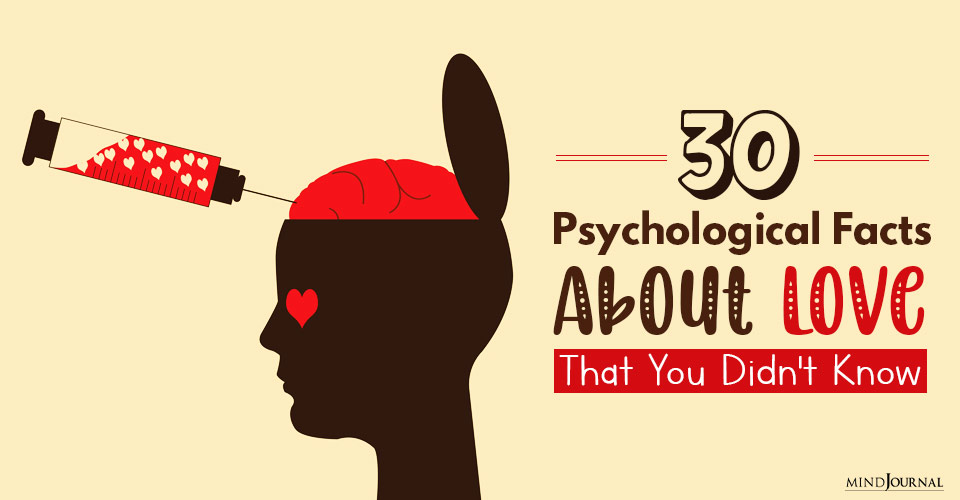







Leave a Reply
You must be logged in to post a comment.